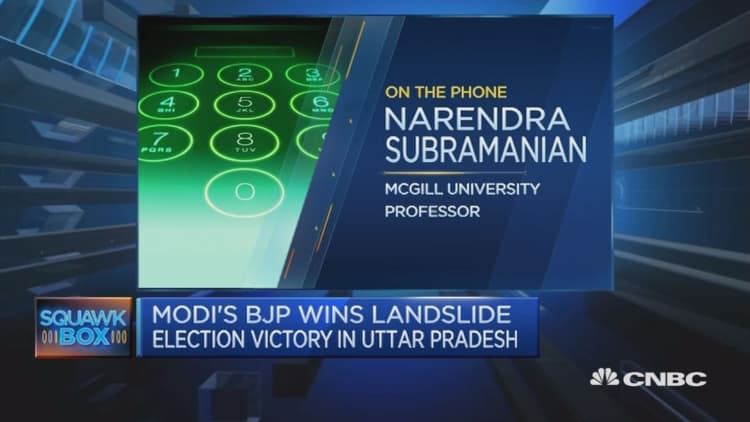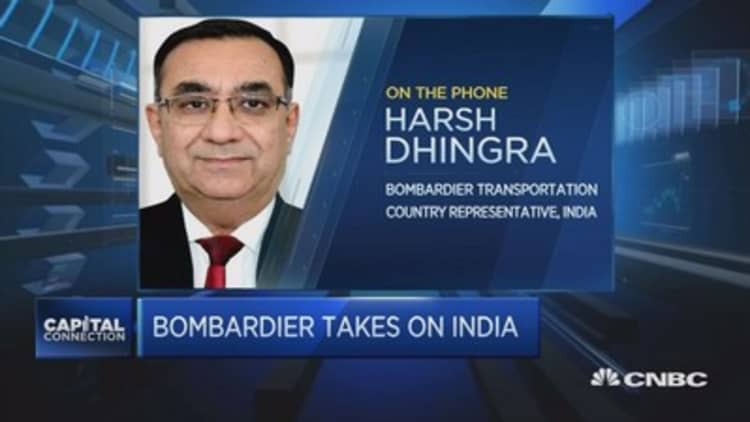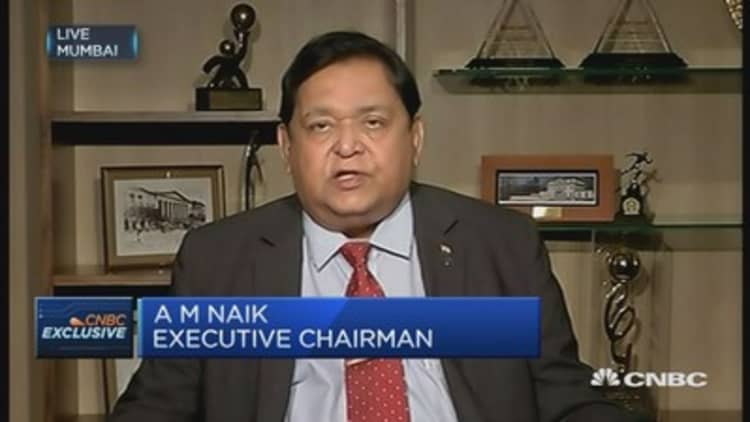Colonial-era train tracks in India will finally undergo a much-needed makeover, and big global players are betting big on the sector.
A landslide victory in Uttar Pradesh last weekend gave Indian Prime Minister Narendra Modi the political capital he needs push through several big-ticket reforms to stimulate the economy.
The win in UP is seen as an endorsement of the current regime's efforts to improve government, especially after the fourth-quarter gross domestic figures proved that the controversial "demonetization" did not hurt the economy as much as expected.
The 312 out of 403 seats they collected in the state assembly, as reported by the Election Commision of India, translate into artillery for Modi's Bharatiya Janata Party. The BJP can now pass even bolder legislation in parliament with a large majority in both upper and lower houses.
Those initiatives include streamlining the national sales tax, improving labor reforms, solving land acquisition issues, and fostering better governance and transparency.

Richard Iley from BNP Paribas wrote in a note that in short-term, BJP's gains "should help ease the passage of the good and services tax (GST) bill through parliament in the current session, ensuring that the landmark reform is introduced by July 1st as widely hoped." He added that "longer-range, a further legislative assault on illegal wealth, changes to restrictive labor and land acquisition laws and further FDI liberalisation are all likely further next steps and reforms that the administration is likely to press on in the next 12-24 months."
Railways poised to benefit
Research firm BMI projected that India's transport infrastructure sector will grow by 6.1 percent in real terms in 2017 and average 5.9 percent annually through 2021, making it the fastest-expanding component of the country's infrastructure sector.
In mid-February, Finance Minister Arun Jaitley presented his 2017 Union Budget to the Parliament where he outlined his plan for infrastructure and railways.
The funds allow state-owned Indian Railways to modernize its infrastructure and service operations, which includes laying 3,500 kilometers of new tracks in the coming year (2017-18) and feeding 7,000 stations with solar power in the medium term. Jaitley also announced a new Metro Rail Act to streamline existing laws, and allow greater private participation in construction and operation.

Several foreign companies have won contracts to improve the state-owned monopoly. These include companies like Alstom, Bombardier and General Electric.
CNBC spoke with French engineering group Alstom's Asia-Pacific vice president, Jean-Francois Beaudoin, to find out what's next for India.
Alstom has been in India since 1990, but Beaudoin says that investments have only massively accelerated in the past few years. Two-thirds of its backlog orders come from India, and the company has multiple plans in the pipeline.
In 2015, Alstom won two rail contracts worth up to $3.98 billion to make and maintain electric locomotives over 17 years.
The company had also signed a contract worth over $215 million, to provide electrification, signaling and telecommunications system for the 343-kilometer-long eastern portion of the Dedicated Freight Corridor.
Both these projects are expected to reduce congestion for passenger service and freight trains. They allow for faster, safer and heavier trains to move across the country.
Beaudoin notes that Jaitley's speech showed that the Indian government is really committed to speeding up the modernization of its infrastructure, which presents opportunities for companies like Alstom.

"Since the new government came to power three years ago, the willingness for transparency, simplification and promotion of foreign investment in India, with the 'Make in India' policy, for instance, has helped a lot for industries like us developing business in India."
Out of its 4,000 employees in Asia-Pacific, Alstom has 2,700 in India, which they say is 10 times what they had five years ago. Eleven percent of the company's 2016 revenue came from Asia-Pacific, with Australia, China, India, Hong Kong and Singapore being the biggest drivers.
The big picture
Several investors have already picked up on this sentiment, going overweight India in the long term.
Christopher Wood, equity strategist from CLSA told CNBC TV-18 in an interview that "in the short term, China's way cheaper than India. There's been a trade going on in China and it can definitely outperform India in the short term. But in the long term, I'm very much structurally overweight India."
Looking ahead to the 2019 elections, Adrian Mowat from JPMorgan predicted that "one would expect measures which are more electorate friendly rather than business friendly to occur."

